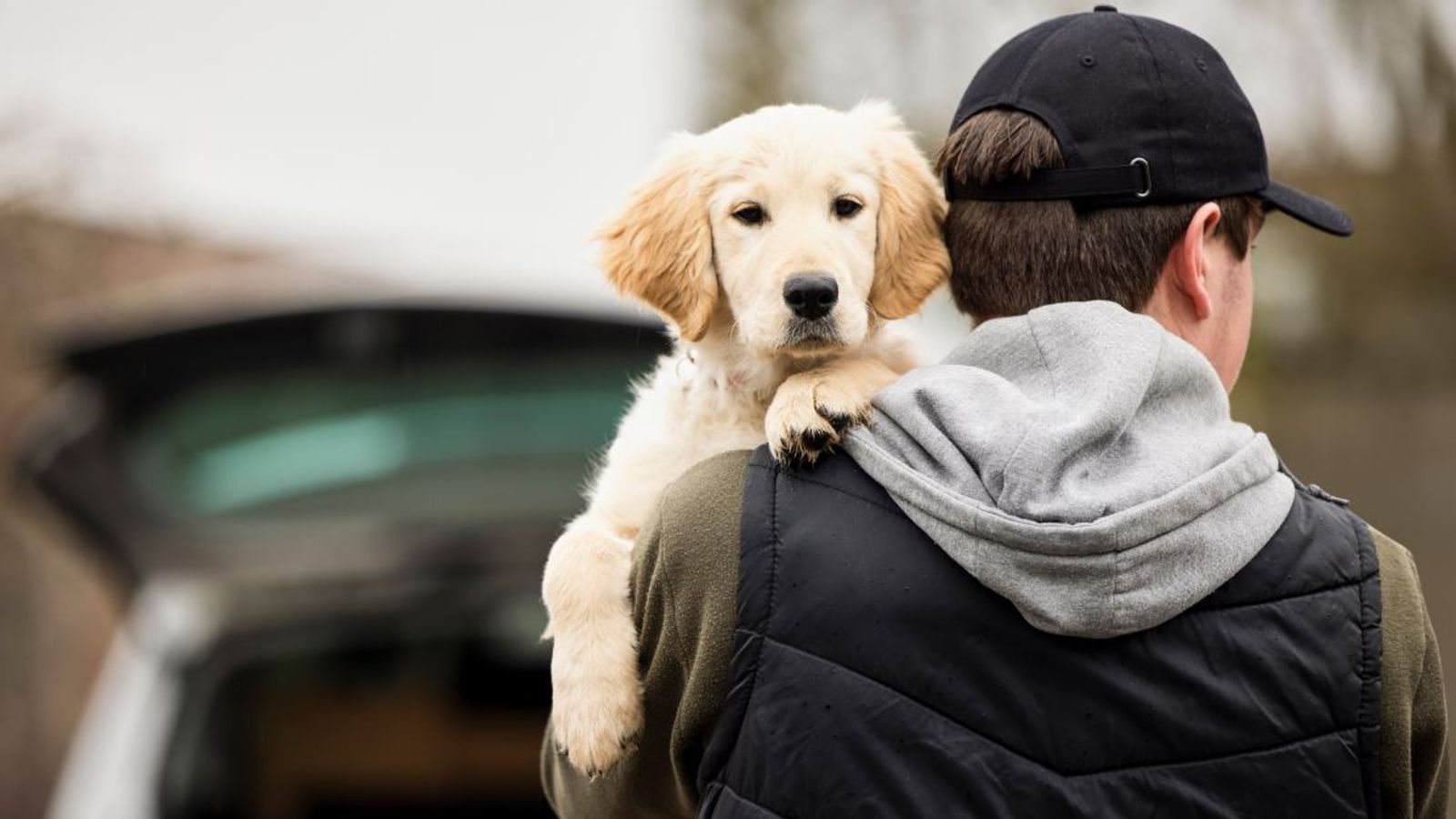For seven years Gerald McCarthy’s dog Molly helped him cope with the sudden death of his wife.
But one morning in February, Molly was snatched from his garden while the 70-year-old briefly popped into the house to put the kettle on.
“She was a massive part of my life,” he says.
“First thing when I finished work every day I was wanting to go back home for Molly. And all my days just revolved around looking after Molly.”
But legally pets are classed as property, so when they’re taken it’s no different to a stolen bike or laptop.
Many say that this doesn’t reflect the emotional bond between pets and their owners, and a petition to make dog theft a specific offence, with a two-year minimum sentence, has gained over half a million signatures.
Katy Stickley’s dog Trigger was also taken from her garden, but the police found him by chance eight months later and returned him home.
She says that when he went missing it felt like one of her children had disappeared.
“It should be classed as kidnap because it’s a living person,” Ms Stickley says. “Even though it’s not a human, it’s still living and still part of the family.”
On Monday, parliament will debate proposals that could make it easier for stolen pets to be reunited with their rightful owners, such as making microchip scanning compulsory for vets, as opposed to optional.
And some MPs, like Labour’s Alex Cunningham, back stronger deterrents for dog thieves.
“The current legislation isn’t tough enough,” he says.
“People can steal a pet and might get a fine of £120 rather than face the full force of the law, and that’s because it doesn’t take into consideration the traumatic effect it has on the family, so what we want to do is have the law recognise the trauma that’s caused to a family by having a pet stolen and put an appropriate sentence for that situation.”
Gerald McCarthy now has a new dog called Missy but he says that nothing can replace his missing pup Molly.
“They don’t know what they’re doing, these people who do this,” he says. “She was a dream dog.”






















